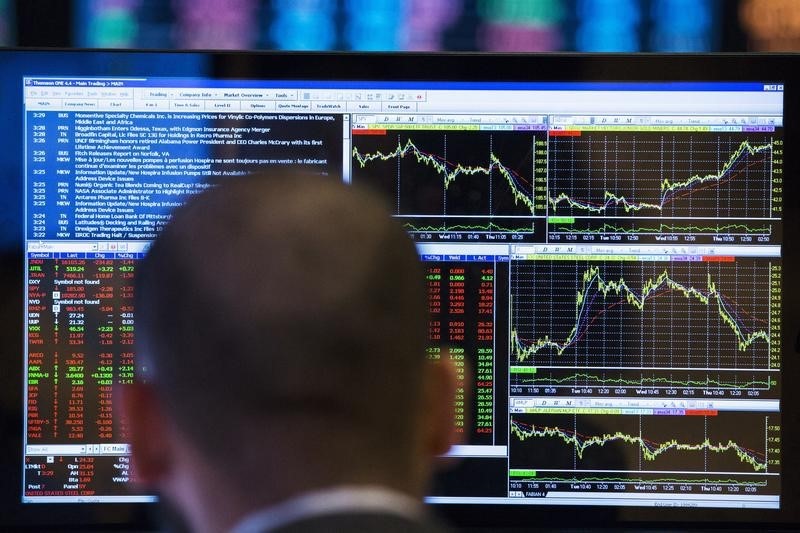Jonathan Stempel
OMAHA, Neb. (Reuters) – Two years ago, Warren Buffett named Berkshire Hathaway’s (NYSE:) energy business one of his conglomerate’s four “giants.” Now he fears his business model may be disrupted.
PacifiCorp’s Berkshire Hathaway Energy unit faces billions of dollars in potential liabilities due to wildfires that have scorched hundreds of thousands of acres in southern Oregon and northern California.
Costs may increase as more fires occur and efforts to prevent them occur. Climate change, with drier, hotter weather and more flammable vegetation, increases risks.
“I did not expect or even consider adverse changes in regulatory yields,” Buffett wrote in his annual letter to shareholders in February. “I made a costly mistake by not doing this.”
What remains unclear is how much PacifiCorp’s troubles are affecting the conglomerate’s overall results, since Berkshire’s deep balance sheet and dozens of other operations can’t fully counteract it.
Buffett, 93, and his designated successor Greg Abel, 61, could face questions from shareholders at Berkshire’s May 4 annual meeting in Omaha, Nebraska, about their concerns about the energy company.
“Wildfires turn (utilities) into insurance companies that are not just utilities,” said Steven Check, who oversees $1.9 billion under Check Capital management, including $600 million in Berkshire stock and options. “This is a significant change. Warren Buffett didn’t expect this to happen at all.”
ESCALATION OF CLAIMS
Berkshire Hathaway Energy serves approximately 5.3 million electric and gas customers through PacifiCorp, MidAmerican Energy and NV Energy in 11 Western and Midwestern states, and millions more in England and Alberta, Canada.
remove advertising
.
It owns 36,400 miles (58,580 km) of transmission lines and operates 21,000 miles of pipelines.
For years, Berkshire Hathaway Energy, which is 92% owned by Berkshire Hathaway, has been a source of stable profit for its parent company, typically contributing between 10% and 12% of total operating profit.
That figure fell to just 6% in 2023 as business profits fell 40% to $2.33 billion.
PacifiCorp was a big reason. A jury found the Portland, Ore.-based utility liable for several verdicts related to wildfires that occurred in 2020, blaming the damage on its power lines. PacifiCorp denies negligence.
But the company ended 2023 with projected wildfire losses of $2.4 billion and said losses could rise to $8 billion.
This week, a group of 1,000 fire victims said PacifiCorp must pay them $30 billion.
One result: PacifiCorp won’t pay dividends to Berkshire Hathaway Energy for several years, which could impact the parent company’s ability to fund operations.
“It is critical for utilities to recover costs and maintain a strong financial profile so they can provide reliability to customers,” said Travis Miller, stock analyst at Morningstar.
Utilities can reduce the risk of wildfires by insulating wires to reduce the threat of sparks, trimming or cutting down trees that might come into contact with power equipment, burying power lines underground and temporarily cutting off power.
But mitigating the fallout could be costly, and Buffett promised that Berkshire “will not knowingly throw away good money.”
Toby Shea, senior credit officer at Moody’s (NYSE:) Investors Service, explained: “He’s saying, look, if we actually have to pay out billions and billions of dollars every time there’s a big fire, that’s an unworkable model. “
remove advertising
.
BLAME THE LAWYERS This isn’t the first time Berkshire has faced major headwinds in big business.
Berkshire spent years cleaning up poor underwriting at General Re after paying the reinsurer $16 billion in 1998.
The company also overpaid for Precision Castparts, which was valued at $32.1 billion in 2016 but saw its aircraft parts business collapse during the pandemic. Litigation involving PacifiCorp could drag on for years, and the ultimate cost and timing of payments remain uncertain.
In his letter to shareholders, Buffett warned that PacifiCorp could face a “forfeiture judgment,” but Berkshire and Berkshire Hathaway Energy were structured to survive that.
While analysts don’t foresee bankruptcy, Berkshire may decide it may not be worth investing in generation and transmission assets if it has to pay large legal bills for several years.
“We anticipate that if PacifiCorp’s losses become unsustainable over the long term, the company’s support for PacifiCorp may be limited,” said S&P Global analyst Sloane Millman.
Berkshire Hathaway Energy declined to comment for this article.
PacifiCorp said the $30 billion lawsuit shows the need for legal reform because of its ability to serve clients “threatened by excessive wildfire damages pursued by plaintiffs’ attorneys who have a substantial financial interest in those outcomes.”
Some states are addressing the risk of utility bankruptcies from wildfires.
In 2019, California lawmakers created a multibillion-dollar wildfire fund that utilities could use to cover damage caused by their equipment.
And in March 2024, Utah lawmakers allowed large utilities to charge customers additional fees to create wildfire funds and limited liability for some claims.
remove advertising
.
PacifiCorp could benefit if Oregon took similar steps. For now, Berkshire’s size provides protection against large losses.
Paul Lountzis, president of Lountzis Asset Management in Wyomissing, Pa., which invests 11% of its assets in Berkshire stocks, said diversification “really helps a lot. That doesn’t mean Berkshire is just one company.”


